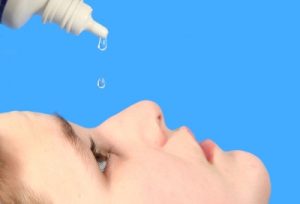
It’s not unusual for a person to experience occasional eye dryness. Temporary eye dryness and eye irritation may be caused by environmental factors, such as low humidity, strong winds, and smoke exposure. However, temporary eye irritation is not the same as dry eyes, which is a chronic eye health problem that requires attention from an ophthalmologist. If you have been experiencing the possible symptoms of dry eyes near Hoffman Estates, an ophthalmologist can help you to better understand the condition and to explore your treatment options.
Myth: Dry Eyes Are Harmless
Temporary eye dryness and irritation may not necessarily be cause for concern. However, chronic dry eyes can lead to serious eye damage. Without proper eye care, dry eye syndrome allows irritants such as pollen and dust to remain on the eye. This is because tears act as a natural cleanser and lubricant for the eye. When foreign material sticks to the eye, the eye can develop inflammation, irritation, and blurred vision. In severe cases, this may even lead to corneal scarring and eye infections.
Myth: Watery Eyes Are the Polar Opposite of Dry Eyes
Some patients who suffer from chronic watery eyes may be surprised to hear that they actually have dry eye syndrome. Although it may seem counterintuitive, watery eyes are a common symptom of dry eyes. This is because dry eye syndrome causes irritation of the eyes, which triggers the lacrimal glands to produce an excessive amount of tears that cannot easily be drained from the eyes. Additionally, the tears may not necessarily contain enough of the watery component – a problem caused by a common condition known as keratoconjunctivitis sicca (KCS).
Myth: Any Eye Drops Will Help Dry Eyes
It’s always best to consult an ophthalmologist for the proper treatment of dry eye syndrome. This is because some over-the-counter eye drops can actually make the problem worse. Medicated eye drops labeled for eye redness inhibits the production of tears. Instead, ophthalmologists recommend using lubricating eye drops. However, some patients may require more aggressive treatment, such as prescription eye drops or non-surgical intense pulsed light (IPL) therapy.

